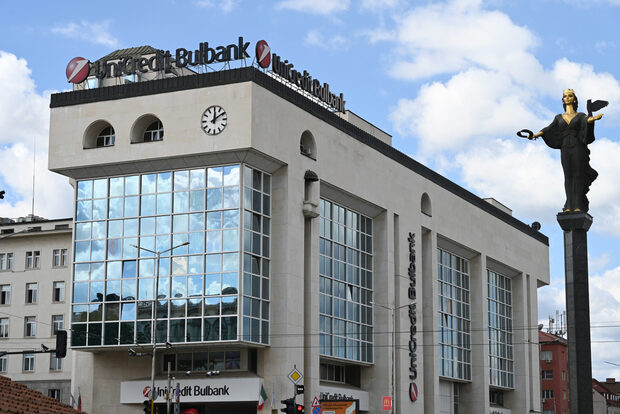For over a year now the Bulgarian National Bank (BNB) has been warning banks about the risks of excessively accelerating their lending activity but recently the scope of warnings has widened.
In its quarterly publication, Banks in Bulgaria, for the period July - September 2018 the central bank has doubled the volume of the part of the text devoted to the banking system's risk profile. Moreover, it has gone into greater detail regarding the risks and has added new ones too.
The BNB has literally underlined the growing cyclical risk from credit activity in bold and italic font. In the same way, the central bank puts emphasis on recommendations to the banks, as well as on the steps it undertook in September to introduce a positive level of the countercyclical capital buffer applied to resident credit risk exposures at 0.5%, with effect from October 2019. Another change is the acknowledgement of the risk arising from the asset quality review (AQR) and stress test for Bulgarian banks undertaken by the European Central Bank (ECB) in preparation for Bulgaria's entry into the EU Banking Union.
Be careful with credit
According to the BNB, the recent economic upswing gives rise to optimistic expectations for both households and businesses. Combined with record-low interest rates, this leads to an increased propensity to finance consumption and investment through borrowing. At the same time, banks are more likely to lend due to over-liquidity, which leads to pre-crisis levels of credit growth, especially visible in the data for households.
"Growth in housing loans contributed to the increase in house prices which in turn stimulated demand for borrowed funds in financing loan purchases," the report reads.
While the BNB acknowledges that in the short term this helps the banks' financial results, it also warns that increasing growth rates may create cyclical risks, especially with regard to borrowers' ability to service their debts in the case of tightening monetary conditions in the euro area. The regulator also believes that there is a risk of borrowers overestimating their ability to service their loans, in addition to banks lowering their standards. Hence the BNB is calling for conservatism once again.
Looking forward to July
For the first time ever the BNB has issued a warning with regard to the AQR and stress tests of Bulgarian banks currently underway, which are part of the procedure for the country's entry into the EU Banking Union and the exchange rate mechanism ERM II - the precursor to the adoption of the euro. The review will cover the three biggest banks by assets in the country (UniCredit Bulbank, DSK, UBB - all of them foreign-owned), as well as three domestically-owned lenders (Fibank, Investbank, CCB). Results are due in July.
Specifically, the central bank says that "the forthcoming asset quality review and stress-test may have an effect on the behaviour of market participants, including in terms of the manner the results are interpreted for the participating credit institutions."
This can be seen as a warning: massive withdrawals may follow if problems are identified and if sanctions are enforced on a bank. The previous AQR of the Bulgarian banking system carried out by the BNB in 2016 showed that the banks with the worst score were Fibank and Investbank. The BNB imposed a number of risk mitigation measures, including replenishment of capital buffers.
For over a year now the Bulgarian National Bank (BNB) has been warning banks about the risks of excessively accelerating their lending activity but recently the scope of warnings has widened.
In its quarterly publication, Banks in Bulgaria, for the period July - September 2018 the central bank has doubled the volume of the part of the text devoted to the banking system's risk profile. Moreover, it has gone into greater detail regarding the risks and has added new ones too.










